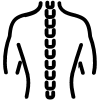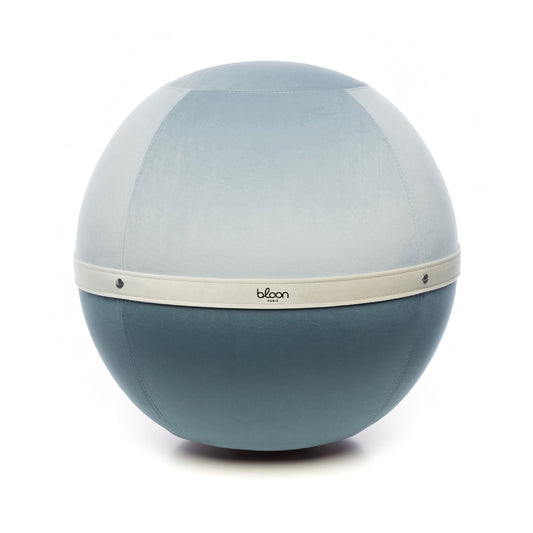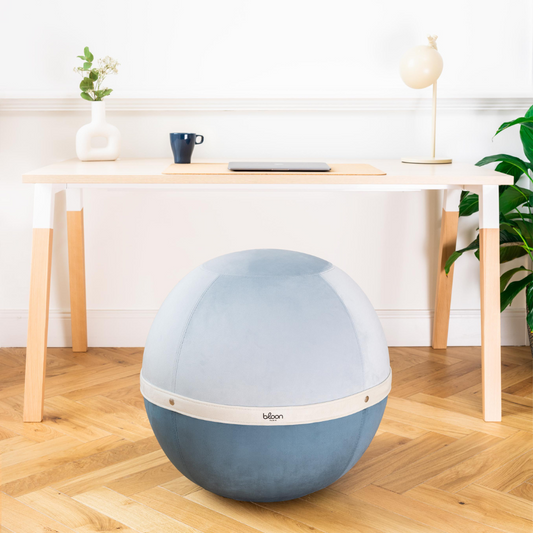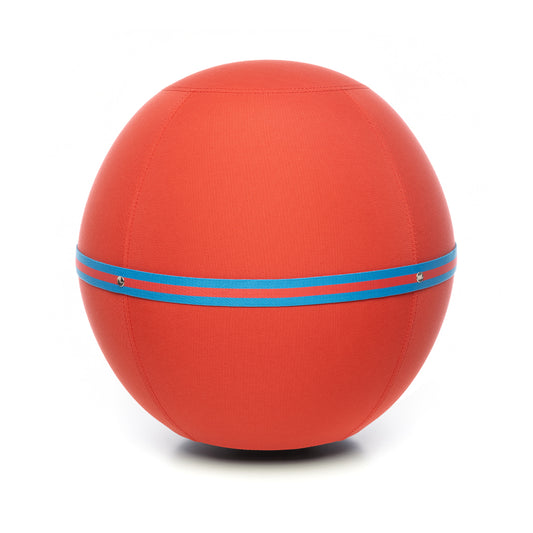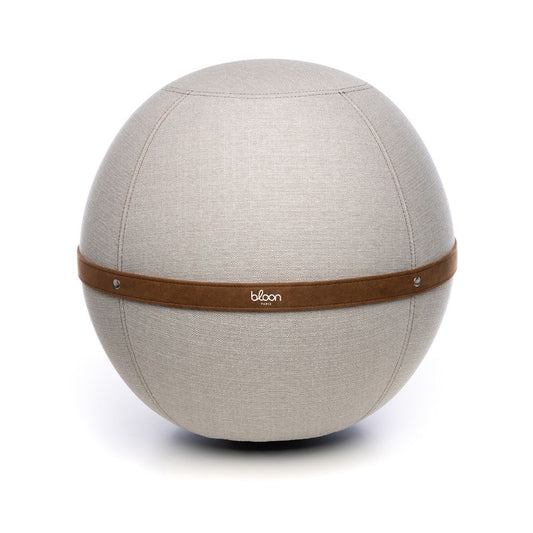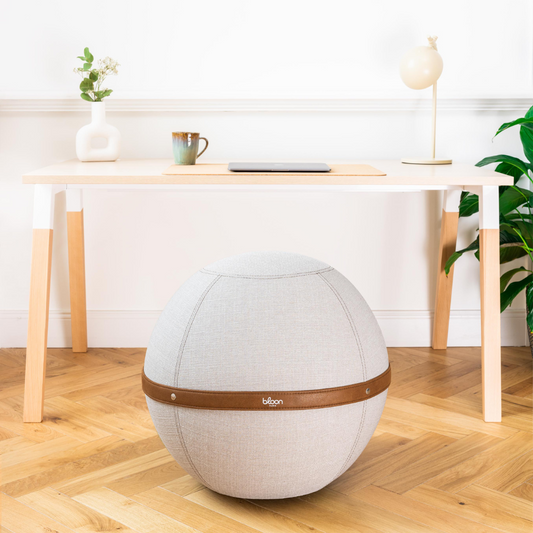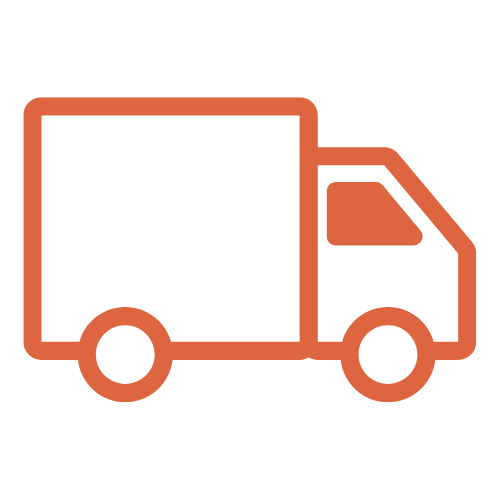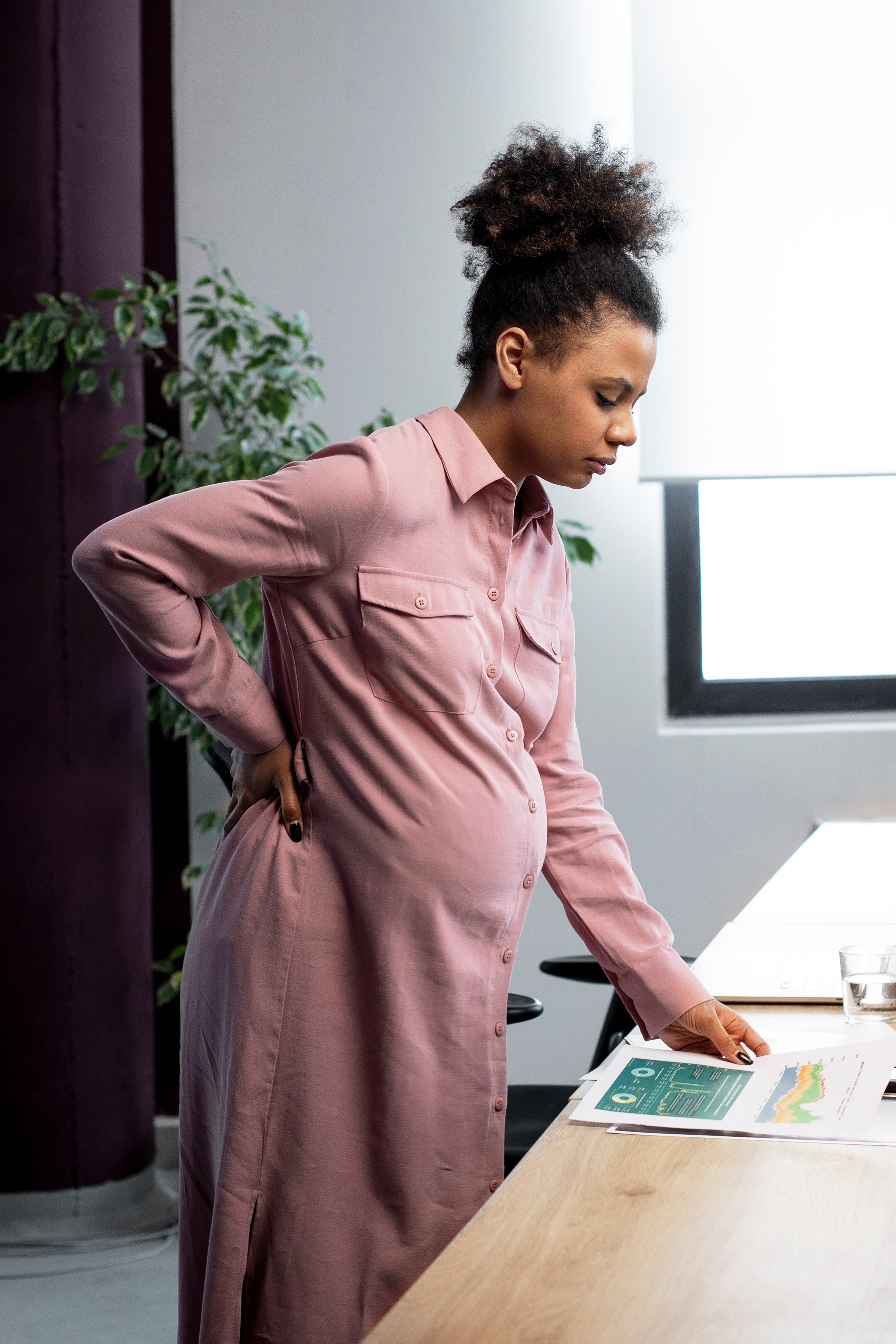Pregnancy is a physically challenging time in a woman's life, with hormonal changes, weight gain, and changes in posture that affect the spine and back muscles. In this article, we offer practical tips to help you manage pregnancy and back pain.
Causes of back pain during pregnancy
The causes of back pain during pregnancy are diverse and can vary from person to person.
Hormonal changes
During pregnancy, the body produces relaxin. Relaxin is a hormone that helps the ligaments in the pelvic area relax and loosen joints in preparation for childbirth. However, this can cause back pain due to the loosening of the ligaments that support the spine.
Weight gain
During pregnancy, a pregnant woman's weight gradually increases. The spine must therefore support additional weight, which can lead to back pain during pregnancy, especially in the lower back.
Postural changes
During pregnancy, the center of gravity shifts forward due to the growing uterus, which is why many pregnant women experience changes in their posture. Unfortunately, this can also cause back pain, tension, and aches.
Separation of the abdominal muscles
To accommodate the growing uterus during pregnancy, the abdominal muscles separate; this condition is also called diastasis recti. This increases the risk of back pain because the abdominal muscles' ability to support the back diminishes.
Tips for managing pregnancy and back pain

Maintain good posture
It is essential to maintain a Good posture is essential for managing pregnancy and back pain. Try to stay upright with your shoulders back and your stomach slightly tucked in to reduce pressure on your lower back and prevent back pain.
Use a support pillow
A supportive pillow, such as a U-shaped or C-shaped pregnancy pillow, can help you manage pregnancy and back pain by allowing you to maintain a comfortable sleeping position. You can also position your pillow under your belly and between your legs for added support.
Avoid standing or sitting for too long
To manage pregnancy and back pain, and reduce back pain and tension, try alternating between sitting and standing positions. If you must sit, use a cushion to support your lower back and take regular walking breaks. If you must stand, use a footrest to reduce pressure on your lower back.
Practice back strengthening exercises
Certain muscle strengthening exercises such as Pilates or prenatal yoga can help you manage pregnancy and back pain by strengthening your muscles, improving your posture and reducing pain.
Wear comfortable shoes
Wearing comfortable shoes with good arch support can help maintain proper posture and reduce back pain. Avoid high heels and opt for flat or low-heeled shoes.
Do regular stretching
Incorporating regular stretching into your routine while pregnant helps relieve muscle tension and maintain flexibility. Try gently stretching your back, legs, and hips several times a day.
Use pain relief methods
There are various methods for back pain relief, such as using hot or cold compresses, prenatal massage, and acupuncture. If you'd like to learn more about back pain relief methods, check out our article: Grandma's remedies for back pain.
Avoid lifting heavy objects
When lifting, bend your knees and keep your back straight. Avoid lifting heavy objects whenever possible and ask for help if necessary to avoid straining your back.
Practice relaxation and deep breathing
To better manage pregnancy and back pain and to relax, practice relaxation, deep breathing exercises, and meditation. You can relieve your back pain by reducing stress and tension.

Consult a healthcare professional if necessary
If back pain becomes severe or persists despite your efforts, consult a healthcare professional. A prenatal care specialist such as a physical therapist can provide treatments and advice tailored to your situation.
Managing pregnancy and back pain is essential to maintaining the health and comfort of pregnant women. It's important to adopt effective practices such as using supportive pillows, practicing muscle-strengthening exercises, and maintaining good posture.
FAQ: Back pain and pregnancy
Is it normal to have back pain in early pregnancy?
Yes, it is completely normal to have back pain in early pregnancy due to hormonal changes and the growing uterus.
How to relieve back pain in a pregnant woman?
To relieve back pain while pregnant, you can use supportive pillows, practice strengthening and stretching exercises, practice good posture, and use hot or cold compresses. For more gentle remedies to relieve your back pain, check out our article: Home Remedies for Back Pain.
Why do I have back pain during pregnancy?
Back pain during pregnancy is due to weight gain, hormonal changes, and a growing uterus.
What type of mattress is recommended for pregnant women with back pain?
For pregnant women suffering from back pain, we recommend using a firm but comfortable mattress that provides good spinal support.
Can I use support pillows during pregnancy?
Yes, you can use support cushions to maintain a comfortable posture and reduce your back pain.
Can back pain during pregnancy affect my baby?
No, back pain during pregnancy is generally harmless to your baby.
When should I see a doctor for back pain during pregnancy?
You should consult a doctor if the pain is severe, persistent, or accompanied by other worrying symptoms.
You can consult our article: How do you know if back pain is serious?
Are prenatal support belts helpful for back pain?
Yes, prenatal support belts can help reduce pressure on the lower back and relieve pain.
Is it safe to use hot or cold packs for back pain relief during pregnancy?
Yes, it is generally safe to use hot or cold compresses, but consult your doctor for specific advice.
Will back pain go away after childbirth?
Back pain usually goes away after childbirth, although some women may continue to experience temporary pain.
